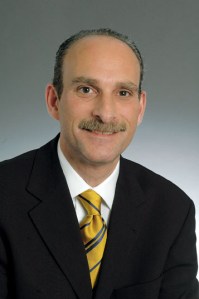Marc Wieder of Anchin Block and Anchin on Temporary IRS Regulations
By Jotham Sederstrom March 28, 2012 10:30 am
reprintsWhile the Internal Revenue Service enacted temporary regulations regarding expenditures on tangible assets in December, most real estate owners are only vaguely aware of what is known as section 263(a) of the Internal Revenue Code. Nevertheless, real estate accountants are fully aware of the changes, which, while already in effect, will likely come into play only a year from now, once taxmen and accountants are fully up to speed with the changes. Marc Wieder, a partner at Anchin Block and Anchin spoke to The Commercial Observer about what the changes mean for real estate owners in New York and how such changes may end up being “permanently temporary.”

The Commercial Observer: Define exactly what these so-called temporary IRS regulations entail?
Mr. Wieder: Temporary regulations identify or clarify what is deemed to be a capital expenditure versus what could be deemed to be a repair and expensed in the current year versus capitalized and amortized or depreciated over the life of the asset.
Under the temporary regulations, what does the IRS now define as a capital expenditure?
The biggest change is the definition of a unit of property. In the past, a unit of property, when it came to real estate, was the building itself, whereas now what they’ve done is they’ve defined specific building systems as units of properties. So in addition to the building there are eight building systems that are each defined as a unit of property.
What are they?
They are the HVAC system, the plumbing system, the electrical system, the escalators, the elevators, the fire-protection system, the security systems, and the gas-distribution systems.
So, from a practical standpoint, what does this mean for a real estate owner?
In the past, to use just one example, if you had one HVAC system for the entire building, and let’s assume the compressor went, you could say the compressor was not a significant part of the unit of property, and therefore expense it as a repair. Today, since that HVAC system is deemed to be a unit of property and the compressor is considered a significant component of that system, it would now have to be capitalized. And in the case for an HVAC system it would get depreciated on a commercial property over 29 years and a residential property over 27½ years, as opposed to, in the past, potentially writing it off in the current year.
Why are these regulations temporary and not permanent?
I think it just gives the IRS the ability to make changes or clarify things as time goes on. Even as temporary regulations, they are law as they stand today. They are something you must abide by, and the effective date of these regulations is January 1, 2012, so as of this year you have to start following these rules.
This year, however, most real estate owners won’t be taxed any differently than normal?
For calendar year 2011 the tax returns that are being prepared now aren’t so much, possibly also because the IRS came out about a week ago pretty much stating to their agents that they’re going to, for now, not look at the past and only look at the future.
Is that the IRS showing mercy?
I guess it’s because of the timing. Because this came out December 27, 2011, everyone had to change gears at the last minute. Maybe that’s part of it. Or maybe it’s partly because they need to train their own people about what it all means.
How long, theoretically, could this regulation remain temporary?
I don’t know the exact rules, but I think they could remain temporary probably forever—permanently temporary. Considering that prior to these temporary regulations, there were proposed temporary regulations which were in effect since 1986. So, to give you an idea, you can propose something back in 1986 and not make them even temporary until 2011 so, given that history, how long can these regulations stay permanent? Quite some time.



